Does eating fruit make you fat? Lately, there’s been a lot of talk about whether fruit is still good for a healthy diet. Some fruits have a bunch of sugar, but that doesn’t mean you should cut them out completely. Fresh fruits have stuff your body needs, like vitamins and fiber, which are really good for you. But you’ve got to be smart about how much and what kinds you eat.
If you’re trying to lose weight and think you’re eating too much fruit, check how much you’re eating and what kind. Keep an eye on your fruit intake and try picking ones with less sugar, like berries, oranges, or apples. That way, you can enjoy the good stuff from fruit without messing up your weight goals. To discover more information about this issue, please join Essential24 to learn more about the information in the article below.
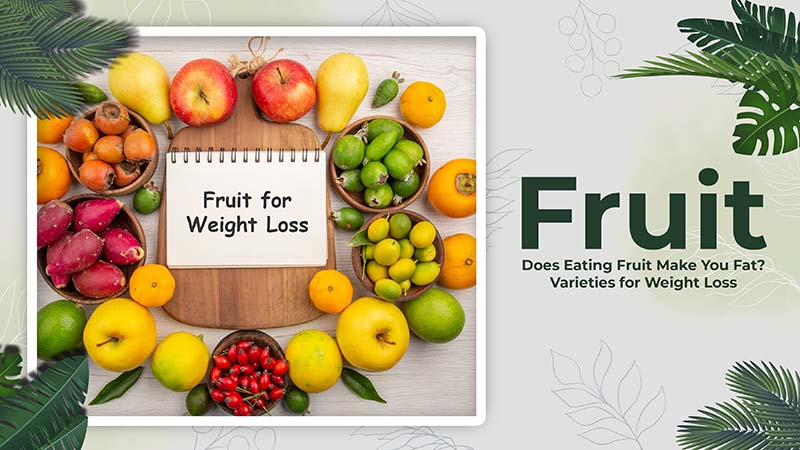
1. Nutritional Values of Fruits
One of the golden rules of healthy eating is to munch on fruits and veggies when they’re in season. You get more bang for your buck in terms of nutrition when you do.
- Apple: Packed with vitamins C and E, folic acid, pectin, and flavonoids, apples are champions for your gut health. They can help lower cholesterol, keep blood sugar in check, and boost your body’s defenses.
- Strawberry: These little red gems are loaded with vitamins A, C, and E, plus folic acid. They’re great for soothing muscle and joint pain, and they work wonders for your skin. Plus, they’re a natural diuretic, helping flush out excess fluids.
- Peach: Bursting with vitamin C and potassium, peaches are gentle on your stomach and can aid digestion. They’re also good for your nervous system, keeping it ticking along nicely.
- Plum: Rich in vitamin A, vitamin C, and calcium, plums are your go-to for keeping things moving in your digestive system. They also give your immune system a boost.
- Apricot: Packed with vitamins A, B, and C, apricots are like a multivitamin for your skin, eyes, and gut. They’re especially great for bone health and can help combat anemia. Plus, they’re good for your muscles and nerves.
- Kiwi: Loaded with vitamin C, kiwis are powerhouse antioxidants. They’re like the fountain of youth in fruit form and can help amp up your allergy defenses.
- Lemon: With a hefty dose of vitamin C, lemons are super antioxidants and natural diuretics. Squeeze them into your water for a refreshing boost.
- Grapefruit: Full of folic acid, potassium, and vitamin C, grapefruits are champions of cell renewal and growth. They’re great for your immune system and can even help stave off arteriosclerosis.
- Orange: Bursting with vitamin C and antioxidants, oranges are a go-to for fighting anemia and keeping your heart and arteries healthy. They’re also good for lowering cholesterol and beefing up your immune system.
- Grape: Rich in potassium and vitamin C, grapes are your gut’s best friend. They’re great for digestion and keeping your body’s defenses strong.
- Pear: Packed with phosphorus, calcium, and potassium, pears are like a hug for your heart. They help keep your cardiac muscles ticking and can help regulate your blood pressure. Plus, they’re full of fiber, which keeps things moving smoothly.
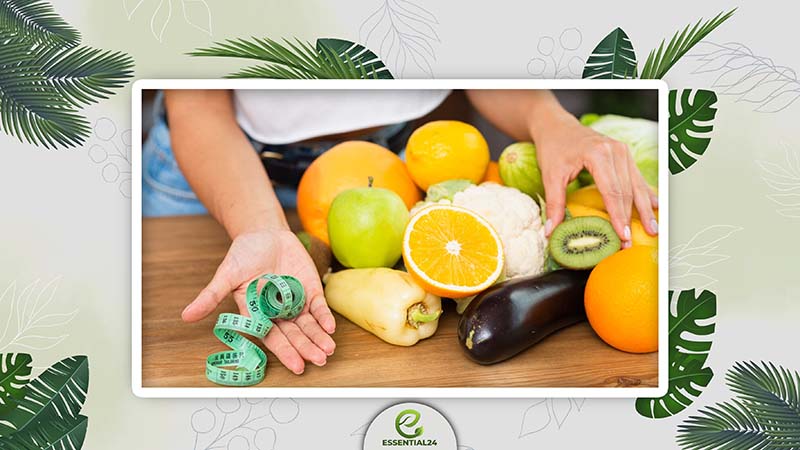
2. Understanding Weight Gain: Does Eating Fruit Contribute?
The Nutrition Counseling Center at the National Institute of Nutrition emphasizes the significance of fruits as vital sources of vitamins and minerals in everyone’s diet. Since fruits are typically consumed raw, they retain their nutritional value, including a rich fiber content, which is beneficial for overall health and weight management, especially for many women.
However, there’s a common misconception that eating lots of fruit won’t lead to weight gain. Some even replace rice with fruit in hopes of shedding pounds. Unfortunately, this strategy can backfire, leading to weight gain instead of loss. Not all fruits are conducive to weight loss, particularly ripe fruits.
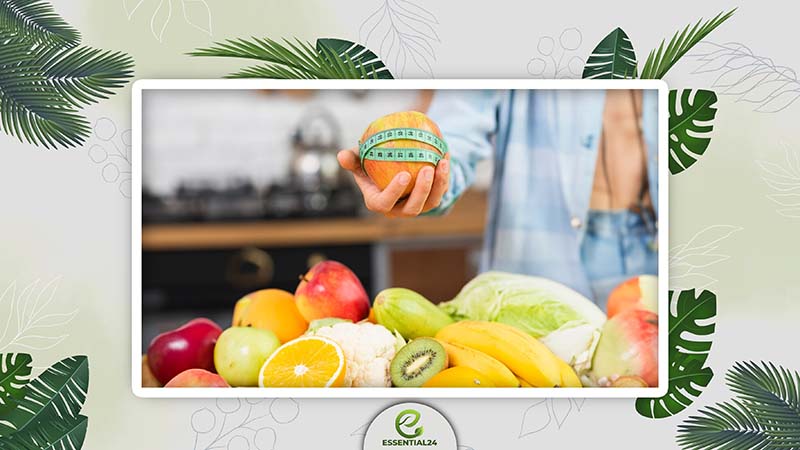
So, which fruits might contribute to weight gain? Ripe and sweet fruits tend to have high sugar content, providing the body with a significant energy boost. For instance, consuming just two 100-gram portions of ripe bananas equals the energy content of a bowl of rice. Similarly, indulging in a 200-250-gram serving of custard apple or mango, or 300 grams of jackfruit, lychee, or longan, equates to consuming a bowl of rice. Therefore, if you ditch rice in favor of these sweet fruits, you’re still likely to gain weight.
In essence, while fruits are undoubtedly nutritious, it’s essential to be mindful of the types and quantities consumed, especially when aiming for weight management goals.
3. Fruit Varieties That May Increase Weight
While most fruits are known for their low calorie content, some can actually contribute to weight gain due to their higher carbohydrate or fat levels. Here’s a rundown of fresh fruits that might tip the scale:
- Bananas: Often a key ingredient in calorie-rich smoothies and drinks, bananas are packed with complex carbohydrates to sustain energy levels. They’re also rich in potassium, which promotes healthy blood circulation and hydration.
- Mangoes: These tropical delights are excellent for boosting energy and can be added to a variety of dishes like milkshakes, smoothies, yogurt, and ice cream. Plus, they’re high in fiber, pectin, and vitamin C.
- Grapefruits: Among the healthiest citrus fruits, grapefruits are renowned for their ability to lower harmful cholesterol levels and are packed with vitamin C. Enjoy them juiced, raw, or tossed into salads.
- Blueberries: Despite their small size, blueberries pack a caloric punch. Loaded with antioxidants, they’re great for overall health and can be enjoyed in salads, snacks, smoothies, yogurt, desserts, and shakes.
- Coconut: Although technically not a fruit, coconut flesh is incredibly nutritious and calorie-dense, making it ideal for those looking to gain weight. Just be wary of sweetened coconut creams, as they can add unnecessary calories.
- Avocados: These superfoods are loaded with healthy fats, antioxidants, and various nutrients. While they’re calorie-dense due to their high fat content, they offer an impressive nutrient profile.
- Dried Fruits: With their water content removed, dried fruits are even more calorie-dense than their fresh counterparts. They make for a convenient, energy-boosting snack, especially before hitting the gym.
- Grapes: Rich in antioxidants, grapes offer protection against various diseases. However, grape jams and jellies can be calorie-dense, so enjoy them in moderation.
- Pears: Despite their high carbohydrate content, pears have a relatively low glycemic index, making them suitable for those with diabetes. They’re also packed with fiber, beneficial for digestive and gastrointestinal health.
- Plums: Loaded with vitamins, minerals, and dietary fiber, plums are a nutritious option for those looking to gain weight while still reaping the health benefits of fruit consumption.
4. Choosing Fruits for Weight Loss
If you’re aiming to shed some pounds or maintain a healthy weight, opting for fruits with low sugar content is key. Here are some choices to consider:
- Cucumbers: These refreshing veggies are low in sugar and calories, making them an excellent choice for weight loss. They’re also hydrating and packed with fiber, vitamins, and minerals.
- Tubers: Tubers like sweet potatoes and yams are nutrient-dense and have low energy density, meaning they provide plenty of nutrients without a lot of calories. They’re a filling and nutritious option for those watching their weight.
- Dragon Fruit: Known for its vibrant appearance, dragon fruit is not only low in sugar but also high in fiber, making it a great choice for weight loss. Plus, it’s loaded with antioxidants for added health benefits.
- Jujubes: These sweet and tangy fruits are low in sugar and calories, making them a guilt-free snack option for weight-conscious individuals.
- Oranges and Tangerines: Citrus fruits like oranges and tangerines are not only refreshing but also low in sugar. They’re rich in vitamin C and fiber, making them a satisfying and nutritious choice for weight loss.
- Melons: Melons like watermelon, cantaloupe, and honeydew have a high water content and are low in calories, making them ideal for weight loss. They also contain compounds that may help reduce fat accumulation in the body.
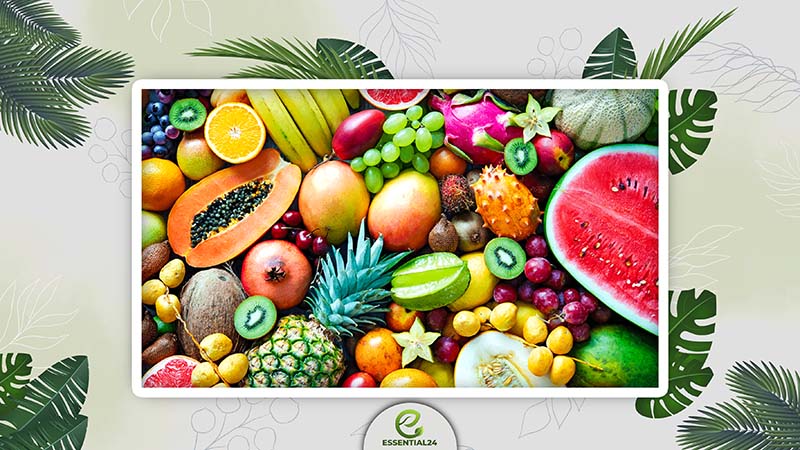
Be careful with certain fruits, especially in hot weather or for people with specific health problems: Jackfruit, Pineapple, Mango, Lychee, Longan, … These fruits Very delicious but contains high sugar content, which can contribute to weight gain if consumed in large quantities. When the weather is hot, it’s best to limit your intake of them to avoid increasing your blood sugar or aggravating skin problems like acne and heat rash.
High blood sugar levels create a favorable environment for bacteria to grow, potentially leading to skin problems such as acne and impetigo, especially for people who are susceptible to these problems. Therefore, moderate consumption of high-sugar fruits is recommended, especially in warmer climates or for people with sensitive skin.
5. Guidelines for Including Fruits in a Weight Loss Diet
When it comes to incorporating fruits into a weight loss plan, making the right choices is crucial. Here are some guidelines to help you navigate:
- Opt for Low-Calorie Fruits: Look for fruits that are naturally low in calories but pack a punch in terms of nutrients. Berries like strawberries, blueberries, and raspberries, as well as citrus fruits such as oranges and grapefruits, are excellent choices. They’re rich in fiber, vitamins, and antioxidants while being relatively low in calories.
- Prioritize Fiber-Rich Fruits: Fiber is your friend when it comes to weight loss as it promotes feelings of fullness and aids digestion. Reach for fruits like apples, pears, and bananas, which are high in fiber and can help keep hunger at bay.
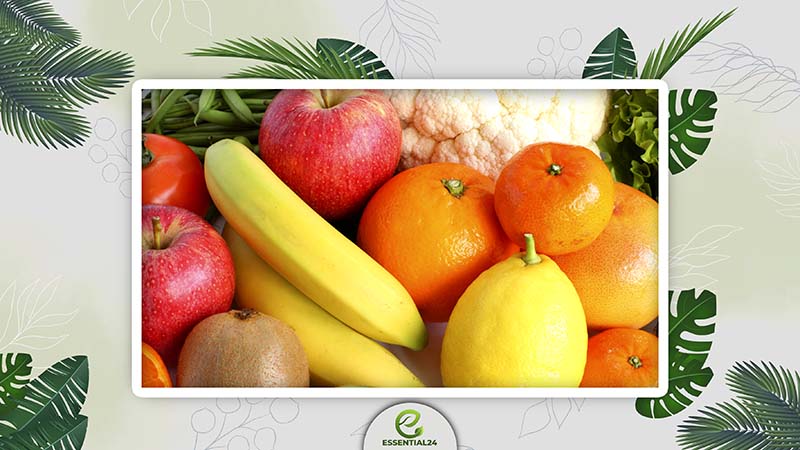
- Consider Water Content: Fruits with high water content can help keep you hydrated and satisfied. Watermelon, strawberries, and oranges are great examples of hydrating fruits that can help control appetite.
- Include a Variety of Colors: Different colored fruits offer a range of nutrients and antioxidants. Aim to incorporate a rainbow of fruits into your diet to ensure you’re getting a diverse array of beneficial compounds. For instance, blueberries are packed with antioxidants, while kiwi provides a hefty dose of vitamin C.
- Mind Portion Sizes: While fruits are nutritious, they still contain calories, primarily from carbohydrates. Be mindful of portion sizes to ensure you’re not inadvertently consuming excess calories. Remember, even healthy foods can contribute to weight gain if eaten in large quantities.
- Balance with Other Food Groups: A balanced diet includes a variety of food groups. While fruits are an important component, don’t forget to also include vegetables, lean proteins, whole grains, and healthy fats in your meals. This ensures you’re meeting your body’s nutritional needs while working towards your weight loss goals.
6. Frequently Asked Questions
Can excessive fruit consumption lead to weight gain?
Yes, excessive fruit consumption can lead to weight gain because fruits contain calories and sugars. While fruits are nutritious, eating them in large amounts can contribute to a calorie surplus, potentially causing weight gain.
Is eating fruit at night associated with weight gain?
No, eating fruit at night is not directly associated with weight gain. Weight gain is determined by overall calorie intake versus expenditure, not the timing of when you eat. However, it’s good to choose fruits that don’t disrupt your sleep or cause digestive discomfort if eaten late.
7. Conclusion
When contemplating the question, “Does eating fruit make you fat?” it’s essential to prioritize low-calorie selections such as berries, citrus fruits, and melons for weight loss. These options are not only low in calories but are also packed with fiber, vitamins, and antioxidants. Fruits that have a high water content, like watermelon and oranges, are particularly beneficial as they aid in hydration and enhance feelings of satiety. To ensure you’re getting a wide array of nutrients and antioxidants, it’s advisable to incorporate a colorful variety of fruits into your diet. And don’t forget to follow Essential24 for more interesting and useful information for your weight loss process


